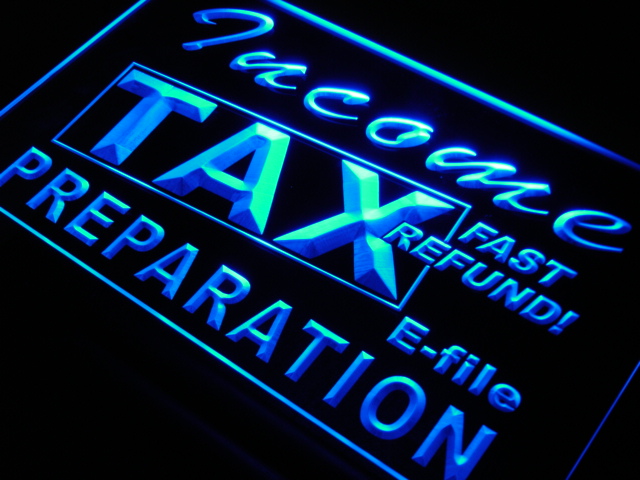Taxpayers are legally responsible for their tax returns even if it is prepared by someone else. That means it’s important to make sure your tax preparer is reputable, trustworthy and has the knowledge required to do the job right.
The Internal Revenue Service says taxpayers should beware of unscrupulous return preparers, what it says is one of the most common “Dirty Dozen” tax scams seen during tax season.
The vast majority of tax professionals provide honest, high-quality service. But there are some dishonest preparers who set up shop each filing season to perpetrate refund fraud, identity theft and other scams that hurt taxpayers. That’s why unscrupulous preparers who prey on unsuspecting taxpayers with outlandish promises of overly large refunds make the Dirty Dozen list every year.
“Choose your tax return preparer carefully because you entrust them with your private financial information that needs to be protected,” said IRS Commissioner John Koskinen. “Most preparers provide high-quality service but we run across cases each year where unscrupulous preparers steal from their clients and misfile their taxes.”
Return preparers are a vital part of the U.S. tax system. About 60 percent of taxpayers use tax professionals to prepare their returns.
Illegal scams can lead to significant penalties and interest and possible criminal prosecution. IRS Criminal Investigation works closely with the Department of Justice (DOJ) to shutdown scams and prosecute the criminals behind them.
Choosing Return Preparers Carefully
It is important to choose carefully when hiring an individual or firm to prepare your return. Well-intentioned taxpayers can be misled by preparers who don’t understand taxes or who mislead people into taking credits or deductions they aren’t entitled to in order to increase their fee. Every year, these types of tax preparers face everything from penalties to even jail time for defrauding their clients.
Here are a few tips when choosing a tax preparer:
- Ask if the preparer has an IRS Preparer Tax Identification Number (PTIN). Paid tax return preparers are required to register with the IRS, have a PTIN and include it on your filed tax return.
- Inquire whether the tax return preparer has a professional credential (enrolled agent, certified public accountant, or attorney), belongs to a professional organization or attends continuing education classes. A number of tax law changes, including the Affordable Care Act provisions, can be complex. A competent tax professional needs to be up-to-date in these matters. Tax return preparers aren’t required to have a professional credential, but make sure you understand the qualifications of the preparer you select. IRS.gov has more information regarding the national tax professional organizations.
- Check the preparer’s qualifications. Use the IRS Directory of Federal Tax Return Preparers with Credentials and Select Qualifications. This tool can help you find a tax return preparer with the qualifications that you prefer. The Directory is a searchable and sortable listing of certain preparers registered with the IRS. It includes the name, city, state and zip code of:
- Attorneys
- CPAs
- Enrolled Agents
- Enrolled Retirement Plan Agents
- Enrolled Actuaries
- Annual Filing Season Program participants
- Check the preparer’s history. Ask the Better Business Bureau about the preparer. Check for disciplinary actions and the license status for credentialed preparers. For CPAs, check with the State Board of Accountancy. For attorneys, check with the State Bar Association. For Enrolled Agents, go to IRS.gov and search for “verify enrolled agent status” or check the Directory.
- Ask about service fees. Preparers are not allowed to base fees on a percentage of their client’s refund. Also avoid those who boast bigger refunds than their competition. Make sure that your refund goes directly to you – not into your preparer’s bank account.
- Ask to e-file your return. Make sure your preparer offers IRS e-file. Paid preparers who do taxes for more than 10 clients generally must offer electronic filing. The IRS has processed more than 1.5 billion e-filed tax returns. It’s the safest and most accurate way to file a return.
- Provide records and receipts. Good preparers will ask to see your records and receipts. They’ll ask questions to determine your total income, deductions, tax credits and other items. Do not rely on a preparer who is willing to e-file your return using your last pay stub instead of your Form W-2. This is against IRS e-file rules.
- Make sure the preparer is available. In the event questions come up about your tax return, you may need to contact your preparer after the return is filed. Avoid fly-by-night preparers.
- Understand who can represent you. Attorneys, CPAs, and enrolled agents can represent any client before the IRS in any situation. Non-credentialed tax return preparers can represent clients before the IRS in only limited situations, depending upon when the tax return was prepared and signed. For all returns prepared and signed after Dec. 31, 2015, a non-credentialed tax return preparer can represent clients before the IRS in limited situations only if the preparer is a participant in the IRS Annual Filing Season Program
- Never sign a blank return. Don’t use a tax preparer that asks you to sign an incomplete or blank tax form.
- Review your return before signing. Before you sign your tax return, review it and ask questions if something is not clear. Make sure you’re comfortable with the accuracy of the return before you sign it.
- Report tax preparer misconduct to the IRS. You can report improper activities by tax return preparers and suspected tax fraud to the IRS. Use Form 14157, Complaint: Tax Return Preparer. If you suspect a return preparer filed or changed the return without your consent, you should also file Form 14157-A, Return Preparer Fraud or Misconduct Affidavit. You can get these forms on IRS.gov.
To find other tips about choosing a preparer, better understand the differences in credentials and qualifications, research the IRS preparer directory, and learn how to submit a complaint regarding a tax return preparer, visit www.irs.gov/chooseataxpro.
Thanks for reading CPA Practice Advisor!
Subscribe Already registered? Log In
Need more information? Read the FAQs
Tags: Income Taxes, Software, Taxes




